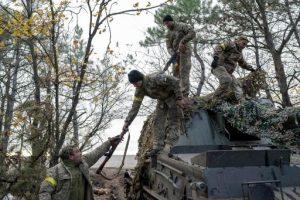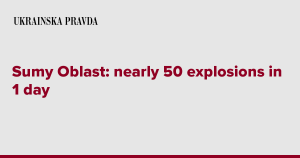
Nuclear and radiation challenges – what is Georgia ready for?
Is Georgia ready to fight potential or real threats – the Georgian service of Radio Liberty tried to find out
Reduction and regulation of chemical, biological, radiation and nuclear threats in Georgia is the responsibility of many departments. There is also an interdepartmental coordinating council chaired by the State Security Service.
Who controls the threats?
Radiation hazard reduction and incident control is a function of the Nuclear and Radiation Safety Agency of the Ministry of Environmental Protection. This agency also manages the radioactive waste storage facility and repository.
Along with the department, if necessary, the emergency rescue service of the Ministry of Internal Affairs should also respond to radiation, chemical, biological and nuclear incidents.
Means of protection and response – what do we have?
To respond to radiation incidents in Georgia there are:
Off-road vehicles, with special trailers, where the equipment is located in such a way that the liquidator can quickly use it;
Personal protective equipment, the latest modern, respiratory protection;
Means of detection;
“Deactivation” [удаление или обезвреживание ядовитых газов или других вредных веществ].
We have equipment for “decontamination” both for a local, small scale, and in case of mass pollution, we can carry out mass “decontamination”. In about an hour, we will be able to “disinfect” up to 60 victims,” Malkhaz Lagurashvili, head of the incident response department at the nuclear security agency, said at a nuclear security forum.
Where does Georgia get the equipment from?
The US Department of Defense Threat Reduction Agency (DTRA) provided Georgia with technical support. Over the years of work, a project of equipment and related exercises and trainings was planned and implemented. According to the representative of the Ministry of Internal Affairs, Georgia received the first equipment for “decontamination” within the framework of the DTRA project.
Problems and shortcomings – what is written in the national strategy?
Last year, the Georgian government approved a new national strategy on chemical, biological, radiation and nuclear threats for 2021-2030. Such a document has existed since 2014 and is published in the Legislative Bulletin. The strategy describes current challenges, needs, ways of prevention in terms of preparedness and response to nuclear threats.
Among them:
Development of medical response plans in case of emergencies;
In order to constantly update knowledge, it is necessary to involve representatives of all levels of relevant departments in training;
Lack of full control of the natural radiation background, which is associated with difficulties associated with human and technical resources;
Expansion of the early warning system, automatic monitoring network;
Placement of radioactive waste management facilities in one place;
Due to the geopolitical position of Georgia, the risk of illegal transit of radioactive substances is quite high;
The uncontrolled situation in the occupied territories regarding the smuggling of nuclear materials, radioactive sources and components of weapons of mass destruction;
There is a question of raising the qualifications of workers employed in the field of nuclear and radiation safety.
Public awareness and readiness – what do we need?
Shorena Lortkipanidze, founder of the Citizens’ Defense and Security Council, says the state has a public relations strategy in case of threats, but the public needs to know more.
“The government says less so as not to sow panic. On the other hand, European magazines and newspapers are also not full of talk about radiation. Of course, we must be sure that in the event of a real threat there will be a quick response, prompt provision of information through television, mobile applications…”.
When asked about the availability of shelters during the evacuation, she says: “There are shelters, but I don’t think any of them are in such a state that you can hide.”
Former Chief of the General Staff Vakhtang Kapanadze, in response to a question about his readiness to fight the nuclear threat, says that he does not see the security mechanisms operating in Georgia:
“Yes, the Tbilisi metro can be used, but what about other cities and regions? In addition, public awareness should be raised on how to behave in the event of a radiation hazard. So let’s hope nothing like this happens until we’re prepared.”
How high is the nuclear or radiation threat?
According to Polina Sinovets, head of the Odessa Center for Nuclear Non-Proliferation in Ukraine, the only solution [для уменьшения угрозы] is a determined US strategy to contain Russia. On the other hand, she notes that nuclear weapons have always been a weapon of political blackmail, a political maneuver.
“The use of nuclear weapons will lead to a nuclear winter, contamination of the territory with radiation. This will affect not only the target country, but also those who will use the weapon, especially Russia. We have the largest border with Russia. Troops are distributed along this border. If, theoretically, Russia uses such weapons, the Russian population will also be affected. This will not match the image of Putin.
Therefore, I think that nuclear weapons are an extreme option for Russia. In fact, no one wants to use it. With this nuclear blackmail, they still hope to win a lot, to attract the attention of NATO, that “okay, guys, if you behave badly, we can do it …”, but for now it is still a political tool of Russia. Polina says.
According to Vakhtang Kapanadze, the nuclear threat increases with Russia’s failure in Ukraine.
“If nuclear weapons are used, they will not be tactical nuclear weapons, because they will not give Russia anything. If so, then it will use operational-strategic weapons of greater power, because a retaliatory strike against the use of any nuclear weapon will be very difficult for it. It will try to inflict the most shocking, most decisive blow with a nuclear strike. In this case, whether it is a radiation cloud or cataclysms that will be caused by such an action, it will certainly affect both Georgia and the Black Sea.”
Director of the Center for Strategy and Development Mariam Tokhadze says that unnecessary fears should not be created among the population, but the state should work on the issue.
“Fear sown by threats can cost the state dearly. So one thing that needs to be done is to work with society. People must have an adequate perception of the reality of the threat.
We should not contribute to the spread of groundless fears and panic, but, on the other hand, the problem should not be seen as simple and insignificant,” says Mariam Tokhadze.


Average Rating